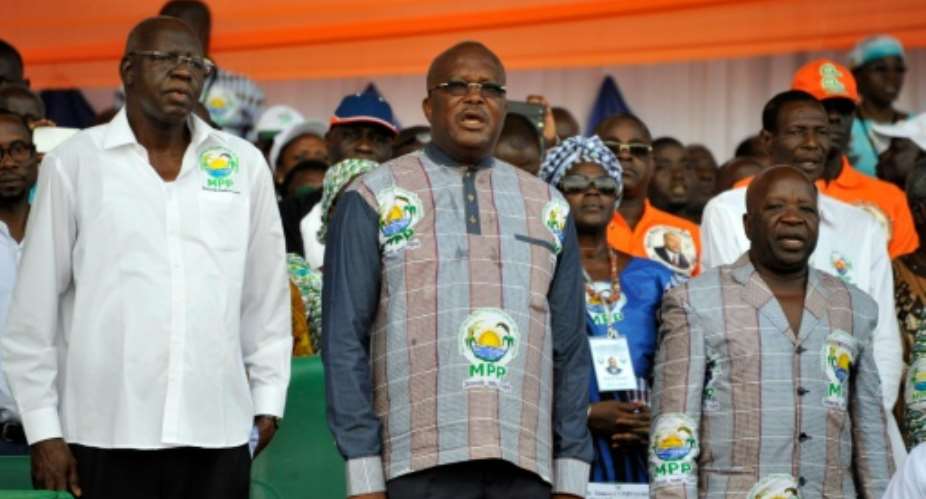Ouagadougou (AFP) - Burkina Faso's new president, Roch Marc Christian Kabore, on Thursday chose experienced economist Paul Kaba Thieba as prime minister of the west African nation, a presidential decree said.
Thieba, 55, a former central banker, who is little known to the public, now will form a government.
His nomination follows the swearing in last week of Kabore, Burkina Faso's first new leader in almost three decades who has pledged to "reform institutions and modernise the government, for more social justice, democracy and freedom."
Kabore takes over from an interim administration that followed a popular insurrection in October 2014 that toppled Blaise Compaore, who had been in power since 1987.
Thieba has a finance and banking doctorate and leaves an administrator's job in the West African Economic and Monetary Union, one of two regional bodies coordinating economic activity in nations sharing the CFA franc, which was historically pegged to the French currency.
The new premier has also held several posts in the Central Bank of West African States.
Kabore, who was elected with more than 53 percent of the votes in a presidential poll late November, also has an economic background, but turned in the 1990s from a banking career to politics.
In January 2014, he went into outspoken opposition against Compaore and played a role in the "Citizen's Broom" movement that brought down the regime, to become the first democratically elected civilian leader of the country.
Both Compaore and his predecessor Thomas Sankara were soldiers.
Kabore has pledged to build "a new Burkina Faso" by fighting youth unemployment, improving education and modernising the health system in the country of 17.4 million. More than 46 percent of Burkinabe people live below the poverty threshold.





 Recently dismissed Weija-Gbawe MCE dead
Recently dismissed Weija-Gbawe MCE dead
 A/R: We’ll engage people to catch stray cattle to protect trees – Simon Osei-Men...
A/R: We’ll engage people to catch stray cattle to protect trees – Simon Osei-Men...
 Kumasi traders threaten to campaign against NPP over abandoned markets
Kumasi traders threaten to campaign against NPP over abandoned markets
 Bawumia to tour Bono and Ahafo regions
Bawumia to tour Bono and Ahafo regions
 Fire destroy structures at Saban Park in Chorkor
Fire destroy structures at Saban Park in Chorkor
 Military-ruled Chad votes for president in bloody transition
Military-ruled Chad votes for president in bloody transition
 Election 2024: NPP done so much and deserves victory — Akufo-Addo
Election 2024: NPP done so much and deserves victory — Akufo-Addo
 AG has 'killed' Cecilia Dapaah matter; 'abrupt end' fits clearing-agent pattern—...
AG has 'killed' Cecilia Dapaah matter; 'abrupt end' fits clearing-agent pattern—...
 Former Weija-Gbawe MCE Patrick Kumor dies
Former Weija-Gbawe MCE Patrick Kumor dies
 French banks exit from Africa will create opportunities for local banks — Fitch ...
French banks exit from Africa will create opportunities for local banks — Fitch ...
